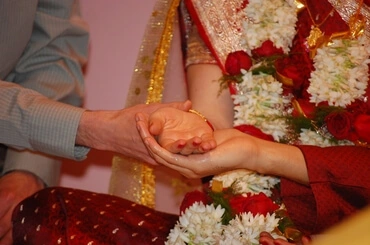Arcana Coelestia # 7042
7042. 'And Jehovah came to meet him' means opposition. This is clear from the meaning of 'coming to meet' as opposition, opposition to the establishment of any Church among that nation. Opposition to the Divine is what is meant when it says that Jehovah came to meet him. To judge from the sense of the letter it seems as though Jehovah or the Divine was the opposer, since it says 'Jehovah came to meet him'. But the internal sense is that it was an opposition to the Divine; for the Divine never places Himself in opposition to anyone. Rather it is the person or nation who place themselves in opposition to the Divine; and when they do so it seems, because they cannot abide the Divine, as though there were resistance from the Divine. What this is like may be recognized from those who enter the next life and wish to enter heaven, yet are not the kind of people who can stay there. When their wish is granted and they are on their way, near the entrance to heaven, they seem to themselves to be like monsters and begin to feel pain and torment because they cannot abide the truth and goodness that are there. They think that heaven and the Divine have placed themselves in opposition to them, when in fact they are the ones, having an opposite attitude of mind, who bring it on themselves. From this one may also see that the Divine does not place Himself in opposition to anyone, but that it is a person who places himself in opposition to the Divine.
Bridegroom

The church is made up of men and women together, but the Writings tell us that the church as a “bride” is neither masculine nor feminine; it is a picture of truth wedded to the Divine goodness of the Lord. On a human level, a bride represents the affection for what is true, and the bridegroom represents the affection for what is good. Most references in the Bible, however, use the terms at a deeper level, where bridegroom represents the Lord – who is Divine Love or Divine Goodness – and the bride represents the church, united to the Lord through ideas and knowledge of what is true.
(Odkazy: Exodus 4)






